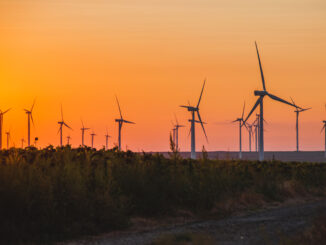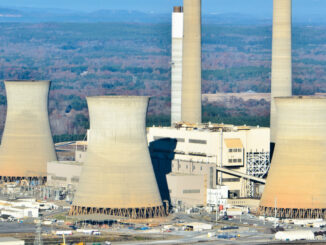
U.S. natural gas futures jumped about 6% to a one-month high on Monday on forecasts for more demand this week than previously expected and a drop in gas output so far this month.
In addition to forecasts for colder weather next week that should keep heating demand higher than normal for this time of year, analysts noted gas prices have soared about 30% over the past four days due in part to a jump in U.S. liquefied natural gas (LNG) exports.
Helping boost LNG exports over the past month has been the partial restart of Freeport LNG’s export plant in Texas following a fire in June 2022.29dk2902l
Some analysts, however, have said Freeport LNG will likely not return to full capacity until the end of April.
Freeport LNG, the second-biggest U.S. LNG export plant, was on track on Monday to pull in about 0.8 billion cubic feet per day (bcfd) of gas from pipelines for a fifth time in the last six days, data from Refinitiv Eikon showed.
When operating at full power, Freeport LNG can turn about 2.1 bcfd of gas into LNG for export.
The amount of gas flowing to U.S. LNG export plants has jumped to 12.8 bcfd so far in February from 12.3 bcfd in January and just shy of the monthly record of 12.9 bcfd set in March 2022 before Freeport LNG shut.
The seven big U.S. LNG export plants, including Freeport LNG, can turn about 13.8 bcfd of gas into LNG.
On its first day as the front-month, gas futures for April delivery rose 15.6 cents, or 6.1%, from where the April contract traded in the prior session to $2.704 per million British thermal units at 9:27 a.m. EST (1427 GMT), putting the contract on track for its highest close since Jan. 27.
That also put the contract up about 10% from where the March contract expired on Friday when it was still the front-month. That would be its biggest one-day gain since late October.
Despite recent increases, however, the contract is still down about 40% so far in 2023 after rising about 20% in 2022.
U.S. GAS OUTPUT
Refinitiv said average gas output in the U.S. Lower 48 states so far in February has dropped to 97.5 bcfd from 98.3 bcfd in January as this year’s gas price plunge caused some energy firms to cut the number of rigs they were using to drill for gas.
Extreme cold earlier in February also cut gas output by freezing oil and gas wells in several producing basins.
Meteorologists forecast the weather will remain mostly colder than normal through March 14 after some warmer than normal days from Feb. 27-March 2.
Even with colder weather coming, Refinitiv forecast U.S. gas demand, including exports, would ease to 120.8 bcfd next week from 121.1 bcfd this week because this week’s forecast included some extreme cold that boosted heating demand over the weekend.
The demand forecast for this week was higher than Refinitiv’s outlook on Friday, while its forecast for next week was lower.
Despite the colder than normal weather coming, analysts forecast mostly mild weather last week and this would allow utilities to keep pulling less gas from storage than normal for this time of year.
Gas stockpiles were about 15% above their five-year average (2018-2022) during the week ended Feb. 17 and were expected to rise to around 20% above normal during the week ended Feb. 24, according to analysts’ estimates.
Share This:



